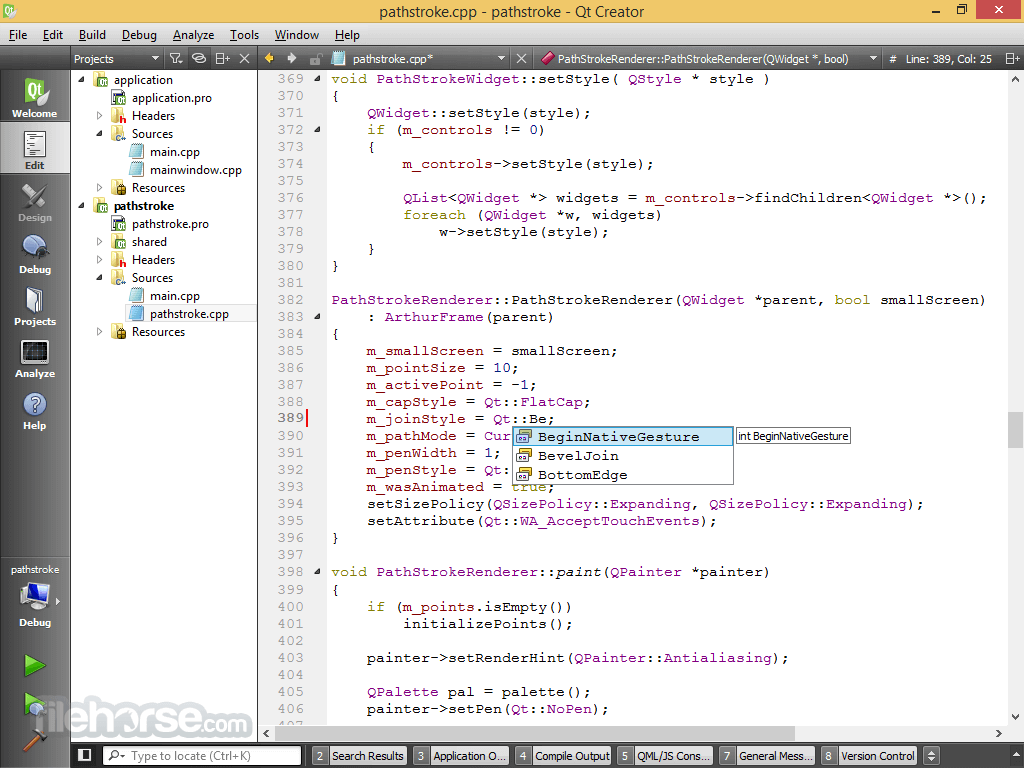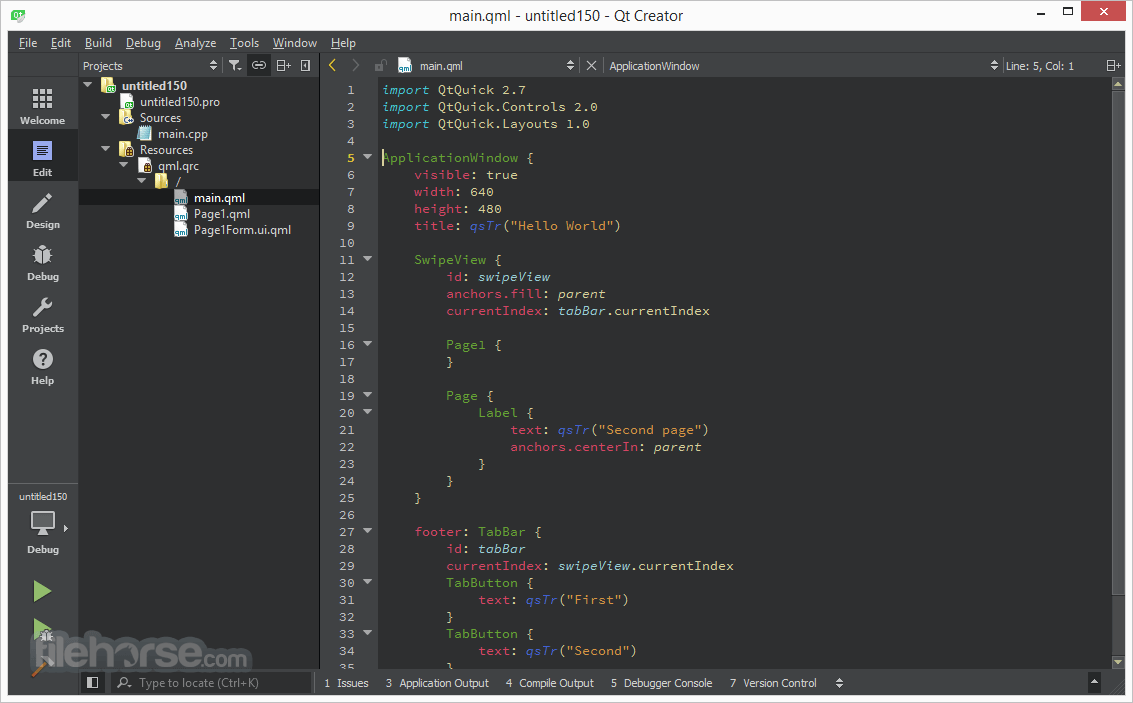-
Latest Version
-
Operating System
Windows Vista / Windows 7 / Windows 8 / Windows 10
-
User Rating
Click to vote -
Author / Product
-
Filename
qt-everywhere-src-6.1.0.zip
Sometimes latest versions of the software can cause issues when installed on older devices or devices running an older version of the operating system.
Software makers usually fix these issues but it can take them some time. What you can do in the meantime is to download and install an older version of Qt 6.1.0.
For those interested in downloading the most recent release of Qt or reading our review, simply click here.
All old versions distributed on our website are completely virus-free and available for download at no cost.
We would love to hear from you
If you have any questions or ideas that you want to share with us - head over to our Contact page and let us know. We value your feedback!
What's new in this version:
New Modules:
The largest focus of Qt 6.1 has been to bring many of the add-on modules that we supported in Qt 5.15 over to Qt 6. Those modules are:
- Active Qt: Qt module to support COM and ActiveX controls on Windows
- Qt Charts: Add charts to your application
- Qt Data Visualization: Visualize static and dynamic data
- Qt Device Utilities: Part of Qt for Device Creation only
- Qt Graphical Effects: Added as a compatibility module to aid porting to Qt 6
- Qt Lottie: Render graphics and animations created in Adobe After Effects
- Qt State Machine: Contains the state machine API from Qt Core in Qt 5 and the SCXML based state machine code
- Qt Virtual Keyboard: Add a virtual keyboard to your embedded device
New Features:
- Qt 6.1 fixes a large number of bugs that were reported against Qt 6.0 or Qt 5.15 and apart from adding the modules listed above this has been our main focus. Fixing bugs will also continue to be a focus area as we get closer to Qt 6.2, which is planned to be the first Long-Term-Supported (LTS) release of the Qt 6 series.
- Of course, Qt 6.1 also includes a couple of new features in modules that existed in Qt 6.0. Let’s talk about some highlights here, but for a full list, please have a look at the release notes and the new features page on our wiki.
- In Qt Core, most efforts have been in adding more convenience and simplifications to our APIs. Amongst other things, we added removeIf() methods and extended the support of erase_if() to more of our classes; we added a few missing methods in QStringView to make it better mirror the QString API. We now have overflow-safe add, subtract and multiply functions and improved the support for 16 bit floating point values. The property bindings introduced in Qt 6.0 have gotten some API refinements. Another major feature are the new classes to simplify integration with Java, QJniEnvironment and QJniObject. Those are mainly used on Android.
- In Qt Gui, there is now a new QUrlResourceProvider class that can be used to avoid subclassing QTextDocument and reimplementing loadResource(). It can also be used by QLabel. We have now better support for Vulkan 1.1 and 1.2 in the Vulkan API wrappers, and QColorSpace can now use custom transfer functions.
- In Qt Network, we introduced a new QNetworkInformation class that exposes the reachability of the system and our cookie handling now supports the SameSite feature.
- Qt Qml now offers QJSPrimitiveValue and QJSManagedValue to give more fine grained control over JavaScript execution than it was possible with QJSValue alone.
- Qt Quick 3D now supports morph target animations. In addition, there is support for instanced rendering and 3D particles on a Technology Preview level. Instanced rendering can dramatically increase rendering performance when a large amount of similar items need to be rendered in the scene. The 3D particles use instanced rendering for the particle effects. Those Both features are expected to be fully supported in 6.2.
- We will soon also release an updated version of Qt for Python that will provide support for the modules we added in Qt 6.1. In addition, it features better support for external deployment tools, and even a new Technical Preview of a commercial tool. Stay tuned for a blog post coming in the next days.
 OperaOpera 117.0 Build 5408.39 (64-bit)
OperaOpera 117.0 Build 5408.39 (64-bit) PC RepairPC Repair Tool 2025
PC RepairPC Repair Tool 2025 PhotoshopAdobe Photoshop CC 2025 26.4 (64-bit)
PhotoshopAdobe Photoshop CC 2025 26.4 (64-bit) OKXOKX - Buy Bitcoin or Ethereum
OKXOKX - Buy Bitcoin or Ethereum iTop VPNiTop VPN 6.3.0 - Fast, Safe & Secure
iTop VPNiTop VPN 6.3.0 - Fast, Safe & Secure Premiere ProAdobe Premiere Pro CC 2025 25.1
Premiere ProAdobe Premiere Pro CC 2025 25.1 BlueStacksBlueStacks 10.42.0.1016
BlueStacksBlueStacks 10.42.0.1016 Hero WarsHero Wars - Online Action Game
Hero WarsHero Wars - Online Action Game TradingViewTradingView - Trusted by 60 Million Traders
TradingViewTradingView - Trusted by 60 Million Traders LockWiperiMyFone LockWiper (Android) 5.7.2
LockWiperiMyFone LockWiper (Android) 5.7.2




Comments and User Reviews